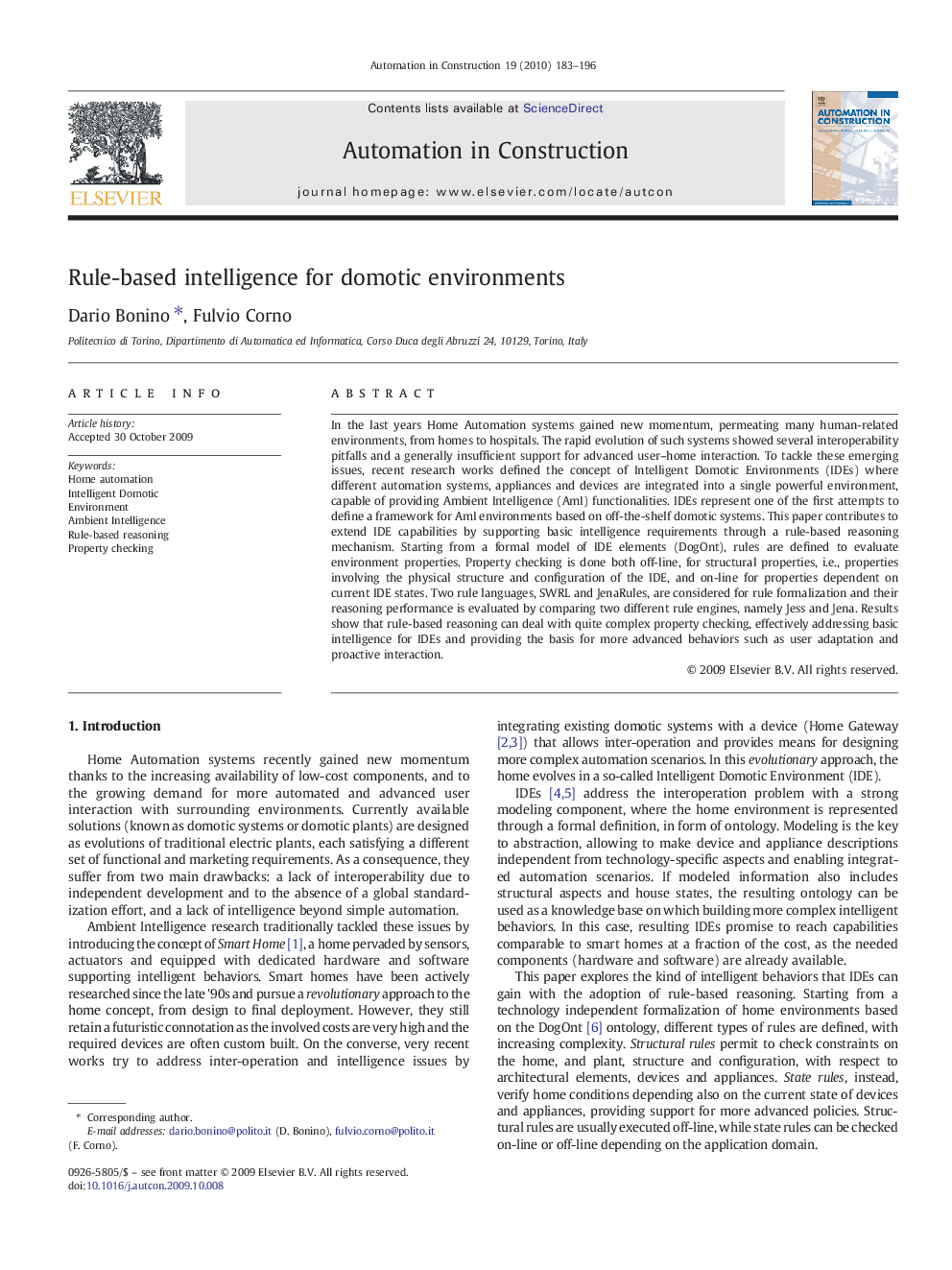| Article ID | Journal | Published Year | Pages | File Type |
|---|---|---|---|---|
| 247200 | Automation in Construction | 2010 | 14 Pages |
In the last years Home Automation systems gained new momentum, permeating many human-related environments, from homes to hospitals. The rapid evolution of such systems showed several interoperability pitfalls and a generally insufficient support for advanced user–home interaction. To tackle these emerging issues, recent research works defined the concept of Intelligent Domotic Environments (IDEs) where different automation systems, appliances and devices are integrated into a single powerful environment, capable of providing Ambient Intelligence (AmI) functionalities. IDEs represent one of the first attempts to define a framework for AmI environments based on off-the-shelf domotic systems. This paper contributes to extend IDE capabilities by supporting basic intelligence requirements through a rule-based reasoning mechanism. Starting from a formal model of IDE elements (DogOnt), rules are defined to evaluate environment properties. Property checking is done both off-line, for structural properties, i.e., properties involving the physical structure and configuration of the IDE, and on-line for properties dependent on current IDE states. Two rule languages, SWRL and JenaRules, are considered for rule formalization and their reasoning performance is evaluated by comparing two different rule engines, namely Jess and Jena. Results show that rule-based reasoning can deal with quite complex property checking, effectively addressing basic intelligence for IDEs and providing the basis for more advanced behaviors such as user adaptation and proactive interaction.
